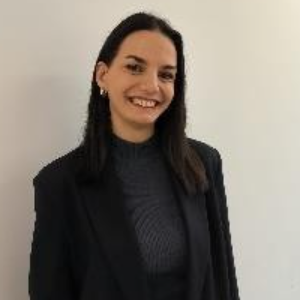Title : Setting-up a field experiment to collect data for the digital twin of crop growth
Abstract:
Gathering data on weather, soil conditions, and key plant growth parameters throughout the season enables running models for predicting crop growth and yield under specific abiotic conditions. The objective of this study was to set up a field experiment to collect data which could be used for the development of the digital twin. The purpose of the digital twin is to simulate crop growth in near-real time and adjust the state variables to reflect the situation in the field. The experiment was conducted in ?enej, Serbia, on a field where maize and soybean were cultivated. The field was divided into 12 different management zones based on multi-year average values of the NDVI and mechanical composition of the soil, with six zones designated for each crop. Soil samples were collected for detailed agrochemical analysis before sowing. Daily weather data were gathered from a meteorological station situated next to the field, together with the soil moisture sensors installed at different depths. Additionally, a set of three soil moisture sensors was placed in each zone. From the intensive growth phase onwards, biweekly data on in-situ measured leaf area index (LAI), plant mass data and images from a drone with a multispectral camera were collected. Within each zone, in-situ LAI measurements were conducted destructively, and leaf area was measured in laboratory conditions, using LI-3100C Area Meter. The yield data were obtained at harvest from a GPS-equipped yield monitor on the combine harvester. The study explored how collected data can be used for the creation of a digital twin of maize and soybean using the WOFOST crop growth model, version 7.1, with water-limited production. It is shown that the drone images that were collected were not suitable for the calculation of LAI due to the lack of specific red-edge band, required by the existing formula. Low-cost soil moisture sensors, placed at different zones, provided unreliable measurements, first due to discontinuity in sensing by losing internet connection occasionally, and second having high standard deviation and values that did not match to the soil moisture measured at the station. However, the WOFOST simulation with data assimilation of in-situ measured LAI and station volumetric soil moisture content at 25 cm depth improved yield prediction. Root mean squared error (RMSE) decreased from 1492.57 kg/ha to 1013.846 kg/ha for maize, and from
275.75 kg/ha to 240.66 kg/ha for soybean. Also, mean absolute error (MAE) decreased from 1198.51 kg/ha to 872.82 kg/ha for maize, and from 240.71 kg/ha to 220.90 kg/ha for soybean.
Audience Take Away:
- How to gather and utilize weather data, soil conditions data, and key plant growth parameters throughout the vegetation season for predicting crop growth and yield under specific abiotic conditions.
- The process of setting up a field experiment to collect data for developing a crop growth simulation in real time and adjust variables to reflect field conditions.
- Improve understanding of crop growth prediction and simulation, enabling them to make more informed decisions regarding agricultural practices and management.
- Implement similar field experiments and data collection methods in their research or teaching, potentially advancing the field of precision agriculture and digital twin development.
- Enhance the accuracy and efficiency of their work by utilizing advanced technologies and models for crop growth management and yield prediction.



